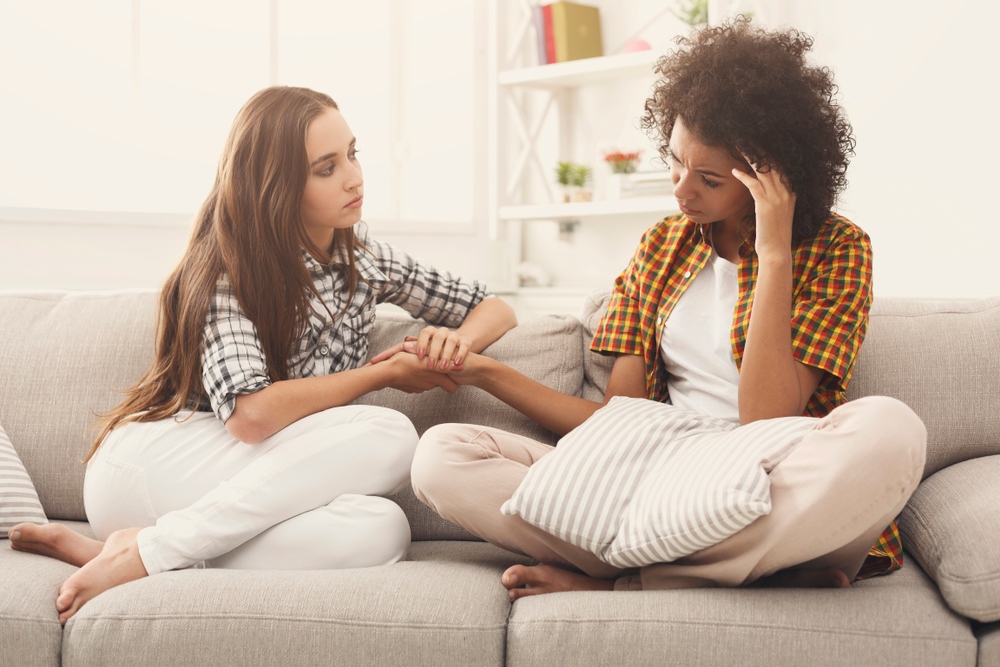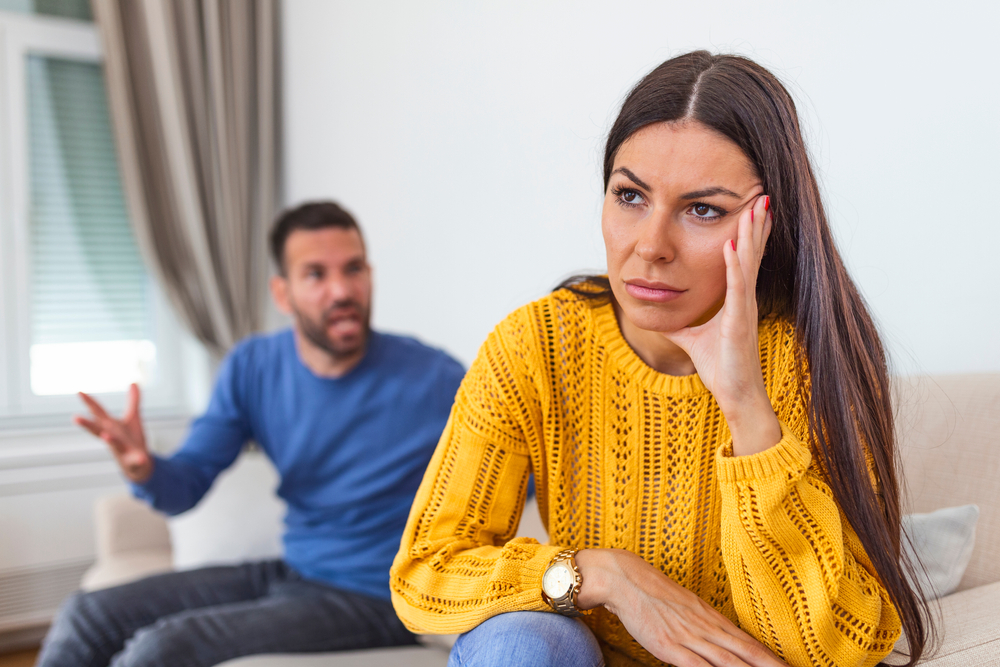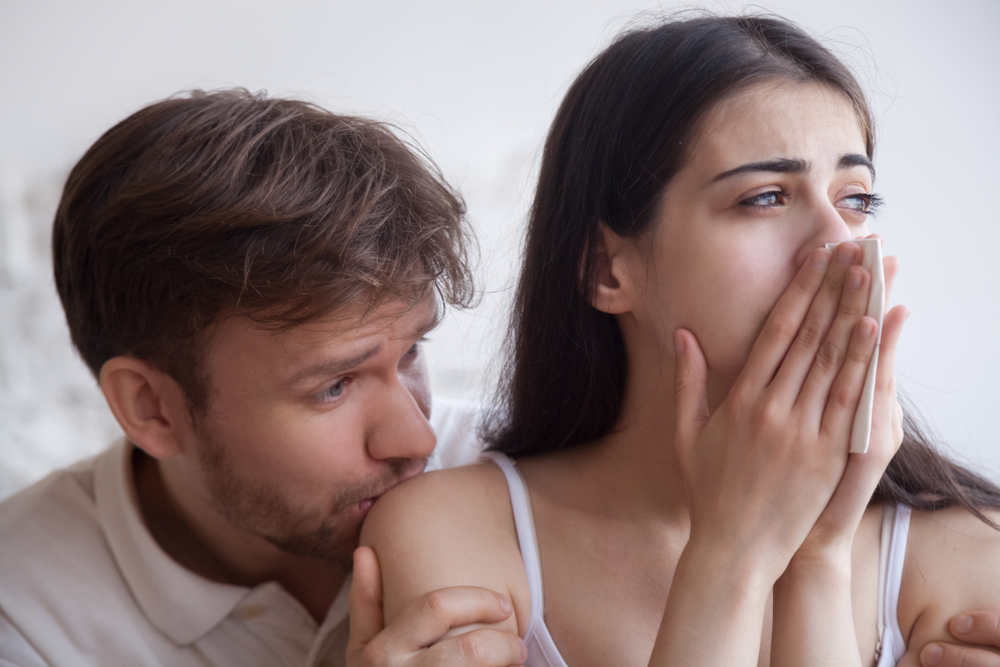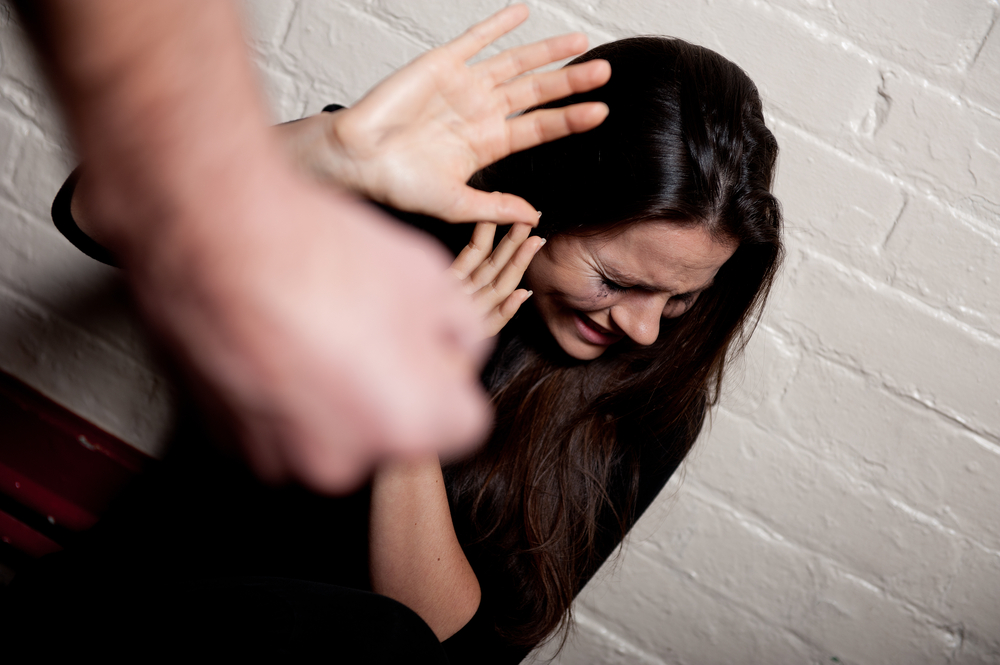A tough topic to discuss, relationship abuse can happen to anyone, regardless of age, gender, race, geography, or place in society.
Relationship abuse is never okay, it’s not normal and shouldn’t be excused.
Relationship abuse is categorized into four main types: physical, emotional, verbal, and sexual.
Multiple types of abuse could be present in a relationship at the same time, but generally, relationship abuse boils down to one partner attempting to control the other.
It leads to fear, anxiety, and depression and ultimately erodes any trust in a relationship.
Abuse is a sign of an unhealthy relationship and is never justified with “I love you too much.”
Relationship abuse is not always apparent on the outside and a lot of victims don’t know how to ask for help or leave their abuser.
Women can suffer from abuse for years and not tell a soul. This is often due to the fear of more abuse, fear of being alone, or fear of judgment from others – or all three.
Table of Contents
Types of relationship abuse

Relationship abuse comes in a few shapes and forms and can look different from couple to couple. Abuse includes, but is not limited to:
- Physical abuse: Hitting, slapping, choking, burning, using a weapon, physical restraint, as well as interference with basic needs, such as sleep, food, and medicine.
- Isolation: Controlling a person’s freedom, restricting their contact with friends and family, controlling their access to information, restricting their mobility, monitoring their phone, email, etc.
- Emotional and psychological abuse: Ridiculing, criticizing, humiliating, lying to, degrading someone.
- Economic abuse: Controlling or stealing money, making financial decisions without consulting, fostering dependence.
- Sexual abuse/harassment: Forcing sex or sexual acts without consent.
- Threats and intimidation: Threatening to harm self, partner, or others.
What can you do if you are the victim of relationship abuse?

If you are experiencing relationship abuse, you are probably going through a multitude of emotions including anger, fear, blaming oneself, etc.
You might also be justifying your partner’s abusive behavior.
That’s not who he is.
But he can be so sweet…
He doesn’t mean to hurt me.
What you are failing to acknowledge is that your partner has no right to hurt you in any way.
No one is making him do it, it’s his choice. He needs help and so do you.
One of the hardest things to admit is that you are in an abusive relationship because ultimately, that’s an unhealthy, failed relationship.
You may love your partner a lot and wish to protect him.
By speaking out, you will ultimately endanger your partner and things will change irreversibly.
Start by sharing what you are going through with your closest friend or family member. You never know when you might need proof of a history of abuse when you choose to go to the authorities.
Another thing to do is to document the abuse, as hard as that might be, including journaling and taking photos of the bruises.
When you are finally ready to leave, it will be easier to do that knowing you have the proof you need should you need to defend your rights.
How can I tell if a friend is a victim of relationship abuse?

It can be hard to identify relationship abuse as an outsider. No one likes to interfere in a friend’s relationship, but sometimes you might just have to.
What does abuse look like from the outside? Here are some patterns to look out for:
- Your friend rarely hangs out with you and when she does, she is constantly on edge
- Your friend says her boyfriend/husband will be angry if she’s late
- Your friend always checks in with her partner before saying yes to anything
- Your friend seems to be missing finances of her own and is relying on pocket money from her partner
- Your friend flinches when her partner raises his hand in her presence
- Your friend is emotional, distraught, and ashamed but won’t share why
- Your friend lives in fear of her partner and seeks his approval
This is just a general list, and there are often different signs that may be more specific to your friend and their situation.
If your friend is a victim of relationship abuse, show her that there is help and she can count on you. Help her open up by listening, not judging, and providing advice.
It takes on average six attempts for abuse victims to properly leave their abuser. Don’t just assume it’s that easy for her to do it.
Understanding what a good relationship looks like

One of the ways to understand that your relationship isn’t worth fighting for is to know what a good relationship looks like.
Here are the signs of a good relationship to look for:
- The relationship is built on trust
Your partner trusts you and doesn’t create conditions for that trust. He simply does.
That means he isn’t throwing tantrums every time you are out without him and don’t text him back within seconds.
He isn’t acting jealous of everyone you speak with and isn’t questioning your love.
- You are equals in the relationship
A healthy relationship means both partners are equals, and no one is trying to control the other. There is a balance, an understanding, and certain boundaries.
- Communication is open and honest
When a relationship is strong and healthy, so is communication.
That doesn’t mean that there are no arguments, just that the two partners know how to handle conflict in a constructive adult way, which helps the relationship grow and improve.
Things you might be feeling in an abusive relationship

If you love your partner, you probably don’t want to accept the fact that he is being abusive.
Especially because an abusive partner can often go from one extreme to another and be extremely good at manipulating and gaslighting you.
“He isn’t violent all the time. I know that he loves me.”
When a partner is violent towards you, this is your proof that he doesn’t really love you.
He isn’t doing this because he loves you so much and he can’t help himself. He is doing it because he has a serious problem.
Once he’s been abusive, he acts extra lovingly towards you, making you almost forget the hurt.
It could be hard to stay angry with him when he’s begging you to forgive him, swears it’s the last time, and treats you like a queen.
Don’t fall for it. He will do it again, and you never know how violent he might be next time,
“Things will get better; he doesn’t really mean to hurt me.”
Again, you are fooling yourself and clinging to the hopeless belief that this man can become better overnight.
After a violent episode, he will of course try to downplay what happened.
He will apologize, say he lost his cool, promise to change, and beg you not to tell anyone or leave him.
At the same time, you will be too ashamed and scared to actually think about telling a soul. You might disassociate from the violence as a coping mechanism.
When things settle down for a bit, it’s easy to forget how he made you feel at that moment. You may start to think that he’s changed.
Until when? Can abusers ever change? Is it that easy?
“It’s a one-off…”
That’s probably what you thought the first time he abused you.
The fact that he did it means that it isn’t a one-off, and he probably did it to women he dated before you. You are feeling confused, and you don’t know what to think.

He may try to influence your sense of reality by manipulating and gaslighting you.
Statistically, if someone is violent towards you, it is likely that they will do it again and again.
“It must be my fault.”
Blaming yourself for your partner’s abusive behavior is one of the worst things you could possibly do. It’s also one of the easiest.
Unfortunately, most abuse victims go through these emotions at some stage in their abusive relationship.
If only you didn’t nag him so much.
If only you came home earlier.
If only you texted him back straight away.
If only you didn’t talk to that guy at the bar.
If only you loved him more.
If only all these things were different, then he wouldn’t abuse you.
No. The abuse doesn’t come with conditions you need to meet. The truth is, he will always find a reason to get angry with you and hurt you.
Don’t look for excuses and don’t blame yourself. No one deserves to be abused.
“I’m scared of what can happen if I leave.”
This is a very real fear of most abuse victims and the reason so many women struggle to leave abusive relationships.
You feel unsafe with him and you feel unsafe at the thought of leaving him.
You are afraid of him and you don’t know what he might do if you left. You are also afraid of being on your own.
It’s important to remember that there is a lot of help out there for abuse victims, and you shouldn’t stay with him out of the fear you won’t make it.
Abuse statistics

Abusive relationships are more common than you might think.
When you are in one, it’s easy to think that no one will understand you and that it’s only happening to you, but you’d be surprised how much support there is out there.
- On average, every minute nearly 20 people in the United States experience abuse from an intimate partner. In a year, that equates to over ten million people.
- One in three women will experience some form of relationship abuse in her lifetime.
- One in seven women is injured by an intimate partner.
- One in five women is raped in their lifetime.
Relationship abuse is a very real threat to women. It impacts their life, well-being, confidence, finances, and children.
It results in long-lasting trauma, fear, and psychological damage.
There is life beyond relationship abuse and there is hope for abuse victims. Seeking help may be tough, be it is the necessary first step.




